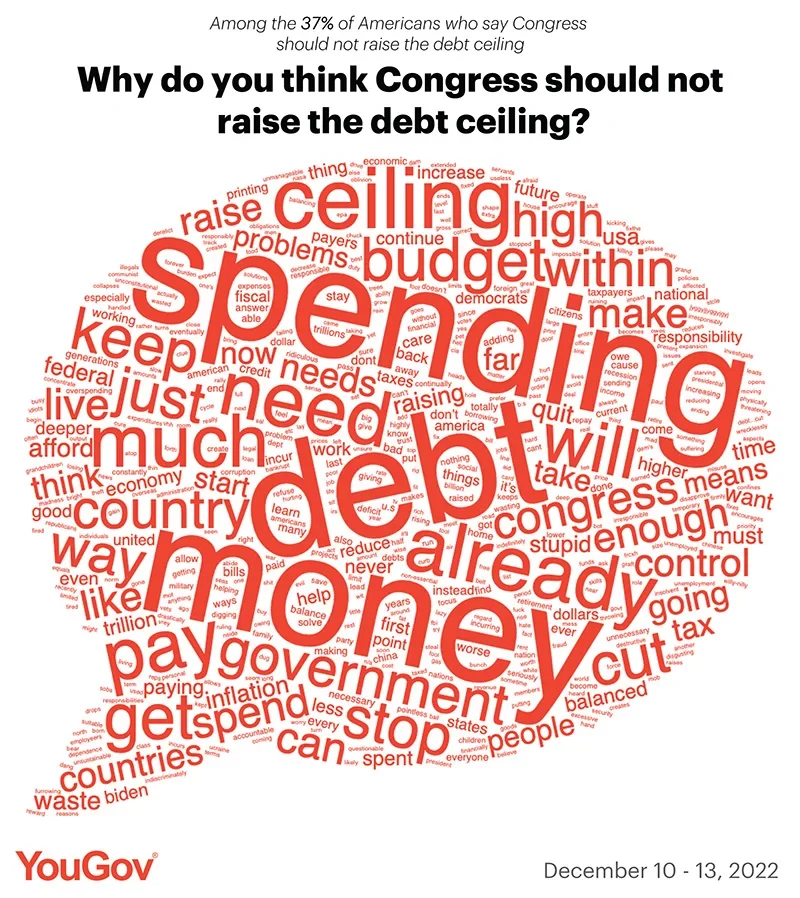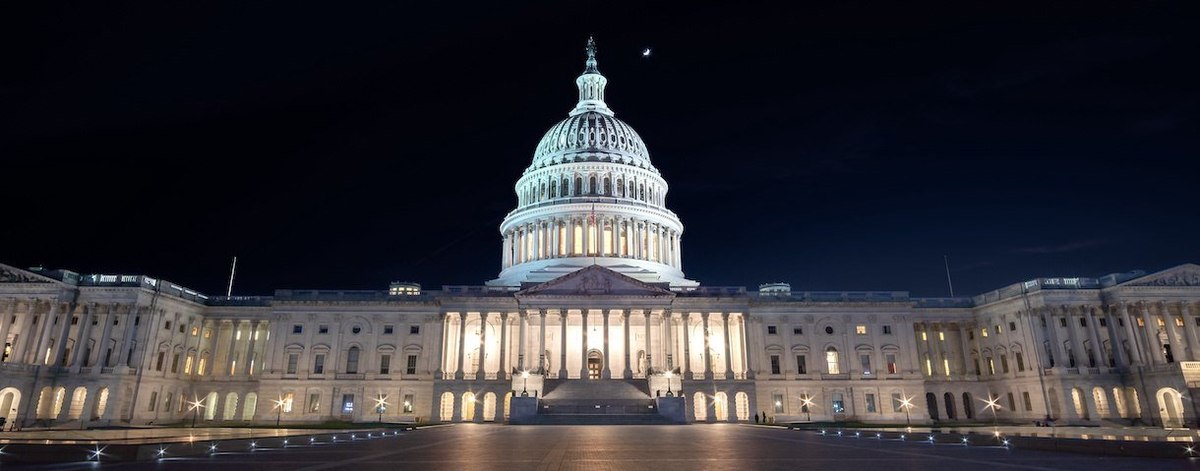Americans are split on whether Congress should raise the debt ceiling according to this week's Economist/YouGov poll — though if Congress doesn't do so in the next few months, the U.S. government will start defaulting on its financial commitments. When asked to explain why they oppose raising the debt ceiling, many Americans who do say they expect Congress to not overspend and they express concern about the existing levels of debt.
Americans were shown a description of the current predicament stating that in order for the U.S. Treasury to incur debt above the ceiling, Congress needs to vote to raise the ceiling, which it has done regularly in the past. Similar to last week's results, people are split on whether Congress should raise the debt ceiling — with slightly more saying it should not (37%) than say it should (31%).
In an open-ended question, YouGov asked the Americans who said Congress should not raise the debt ceiling to explain why they said that. Many expressed concern that Congress will never stop raising the debt ceiling or that an increase in the debt-ceiling limit will contribute to inflation. Others said that Congress should not spend more money than it takes in. Here are some of the responses. They have been edited for clarity and may not reflect every view expressed in response to the open-ended question:
- Among the 63% of Republicans who say Congress should not raise the debt ceiling:
- "America already has enough debt as it is and with the economy in such bad shape it just doesn’t make sense to incur more debt."
- "Balance your budget, crazies. I can't live like that. Even if I could raise all my credit card limits I wouldn't want to. I would want to pay them off responsibly. That way I wouldn't have to go around expecting more money from everyone else to pay for my poor money-management skills."
- "They need to get wise, stay within their budget for once, and decide on a budget with some constraints. They can't go on spending like they are indefinitely — they'll bankrupt the country!"
- "Congress and the White House need to learn how to live within a budget. That goes for both Democrats and Republicans. They need to work on balancing the budget, not on spending more."
- "If I have to stay within the confines of my budget, so should the government… The government needs to stop acting like a self-entitled teenager spending like a fool with a credit card he stole from his parents."
- Among the 31% of Independents who say Congress should not raise the debt ceiling:
- "I think it will lead to more spending of borrowed or newly created money by the government and therefore more inflation. Inflation has already seriously harmed my retirement savings and I am near retirement. If they don’t stop this out-of-control spending of money we don’t have, I will have nothing left to retire on."
- "Money does not grow on trees. It is being wasted and the working people are suffering to pay taxes for things we don’t agree with."
- "Congress can not keep kicking the can down the road. They must come up with real-life solutions and start attacking their debts."
- "Where will the money come from???? ME, and I don't have it. I do not want to pay more taxes so that our country can sink deeper and deeper in debt!"
- "If Congress cannot abide by the guidelines set forth by a budget that Congress set in motion, then they are failures and derelict of duty and should be terminated from office."
- Among the 19% of Democrats who say Congress should not raise the debt ceiling:
- "We all have to live within a budget. Inflation sucks; we all have to make ends meet. Congress should be no different."
- "It's not right to continually overspend and not address the underlying issues at hand."
- "There is enough debt in America and if the ceiling is raised, I feel there will be rampant spending. If we don't stop raising the ceiling, when does all this spending stop?"
- "They need to work on the budget and reduce spending, starting with the defense budget."
- "We don't need to keep spending money we don't have."

— Carl Bialik contributed to this article
See the toplines, crosstabs, and tracking report from the Economist/YouGov poll conducted on December 10 - 13, 2022 among 1,500 U.S. adult citizens.
Methodology: Respondents were selected from YouGov’s opt-in panel using sample matching. A random sample (stratified by gender, age, race, education, geographic region, and voter registration) was selected from the 2019 American Community Survey. The sample was weighted according to gender, age, race, education, 2020 election turnout and presidential vote, baseline party identification, and current voter registration status. Demographic weighting targets come from the 2019 American Community Survey. Baseline party identification is the respondent’s most recent answer given prior to June 1, 2022, and is weighted to the estimated distribution at that time (34% Democratic, 31% Republican). The margin of error for the overall sample is approximately 3%.
Image: Adobe Stock (porqueno)











